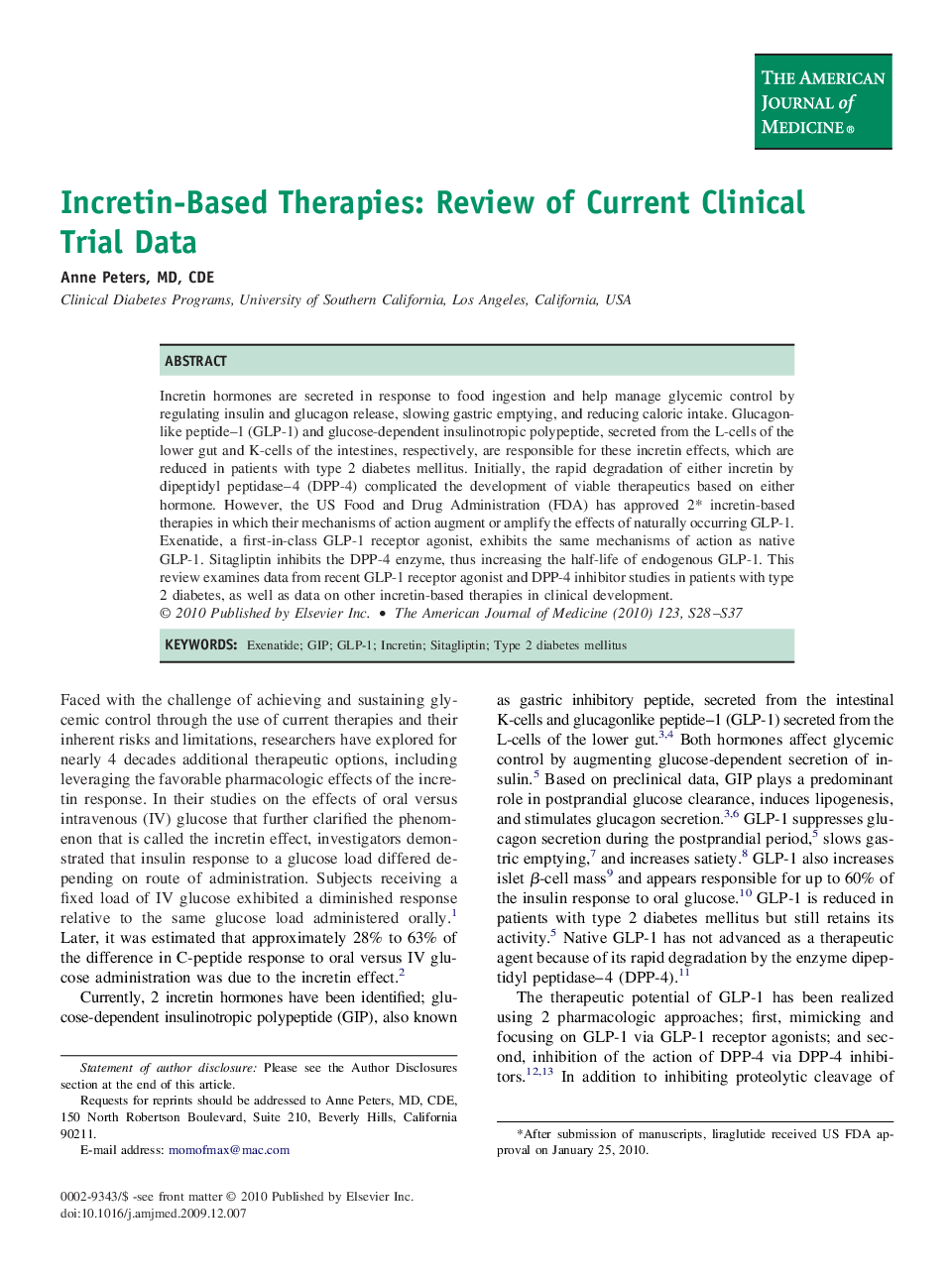| Article ID | Journal | Published Year | Pages | File Type |
|---|---|---|---|---|
| 2720158 | The American Journal of Medicine | 2010 | 10 Pages |
Incretin hormones are secreted in response to food ingestion and help manage glycemic control by regulating insulin and glucagon release, slowing gastric emptying, and reducing caloric intake. Glucagonlike peptide–1 (GLP-1) and glucose-dependent insulinotropic polypeptide, secreted from the L-cells of the lower gut and K-cells of the intestines, respectively, are responsible for these incretin effects, which are reduced in patients with type 2 diabetes mellitus. Initially, the rapid degradation of either incretin by dipeptidyl peptidase–4 (DPP-4) complicated the development of viable therapeutics based on either hormone. However, the US Food and Drug Administration (FDA) has approved 2⁎ incretin-based therapies in which their mechanisms of action augment or amplify the effects of naturally occurring GLP-1. Exenatide, a first-in-class GLP-1 receptor agonist, exhibits the same mechanisms of action as native GLP-1. Sitagliptin inhibits the DPP-4 enzyme, thus increasing the half-life of endogenous GLP-1. This review examines data from recent GLP-1 receptor agonist and DPP-4 inhibitor studies in patients with type 2 diabetes, as well as data on other incretin-based therapies in clinical development.
